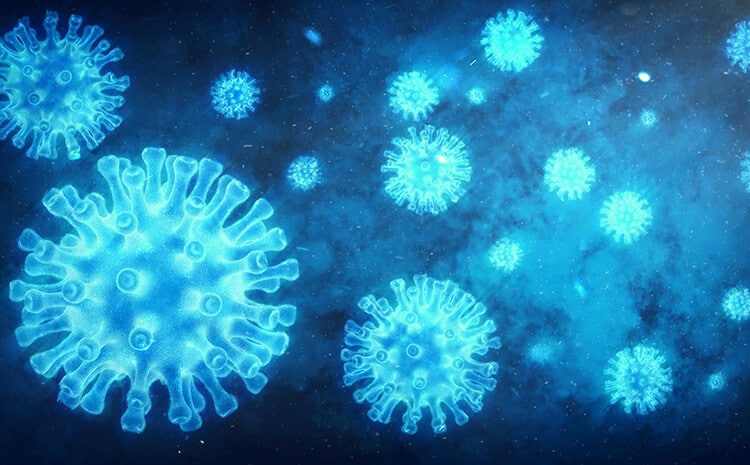Alarm for a new coronavirus mutation. Specifically, the scientists announced that they have located in Africa a a new variant of the coronavirus, B.1.1.529, which causes concern because it carries too many mutations. So far they have been confirmed ten cases, three in Botswana, where the new strain of the virus was first found, six in South Africa and a in Hong Kong (to a traveler returning from South Africa).
Concern about new pandemic waves
Researchers, led by virologist Dr. Tom Pickock of Imperial College London, who made the announcement, according to the British Guardian and Independent, are worried that the new variant will expand and trigger new pandemic waves, which in fact will escape the body's defenses.
The variant has 32 mutations in the coronavirus protein, which it uses to penetrate and infect human cells and which is the main target of vaccines. As Pikok said, "the incredibly large number of mutations in the spike protein suggests that this variant may be a source of real concern," he said, adding that "it needs to be closely monitored because of its terrific spike protein profile." He added, however, that it may eventually prove to be not very contagious.
University of Cambridge professor of clinical microbiology Ravi Gupta said his lab found that two of the mutations appeared to increase the virus' ability to infect and reduce its ability to be recognized by antibodies.
When did the first cases of the new mutation appear?

The first cases of variation were detected in Botswana at 11 November and, three days later, they were also located in the neighborhood South Africa. At the same time on 13 November the variant was found in a 36-year-old at Hong Kong, who had previously traveled to South Africa.
Professor of Computational Biology François Balot, Director of the Institute of Genetics at University College London (UCL), estimated that the large number mutations in the same variant it probably accumulated all at once during a chronic infection in a patient with a weakened immune system, probably a person with HIV / AIDA who did not receive treatment. He added, however, according to AMPE, that "it is difficult to predict at this stage how contagious it is. At the moment, it should be closely monitored and analyzed, but there is no reason for excessive concern, unless it starts to increase in frequency in the near future. "
via: Newsbeast
